May 18, 2022; 11:00 PM / By Tosin Ige, Proshare Research / Header Image Credit: EcoGraphics
The latest phase 2 of the African Continental Free Trade Area (AfCFTA) Country Business Index reveals that businesses in seven African countries have a neutral perception of the business environment for investing and trading in goods across Africa under the AfCFTA.
The United Nations Economic Commission for Africa (UNECA) launched the AfCFTA Country Business Index in 2018. It began refining the index to measure and compare the perceptions of businesses across Africa on the implementation of the AfCFTA. The index has gone through two phases. The latest report is phase 2, covering seven countries, and the third phase is expected to cover six more countries in Africa (see illustration 1 below).
Illustration 1: Phases of the AfCFTA Country Business Index
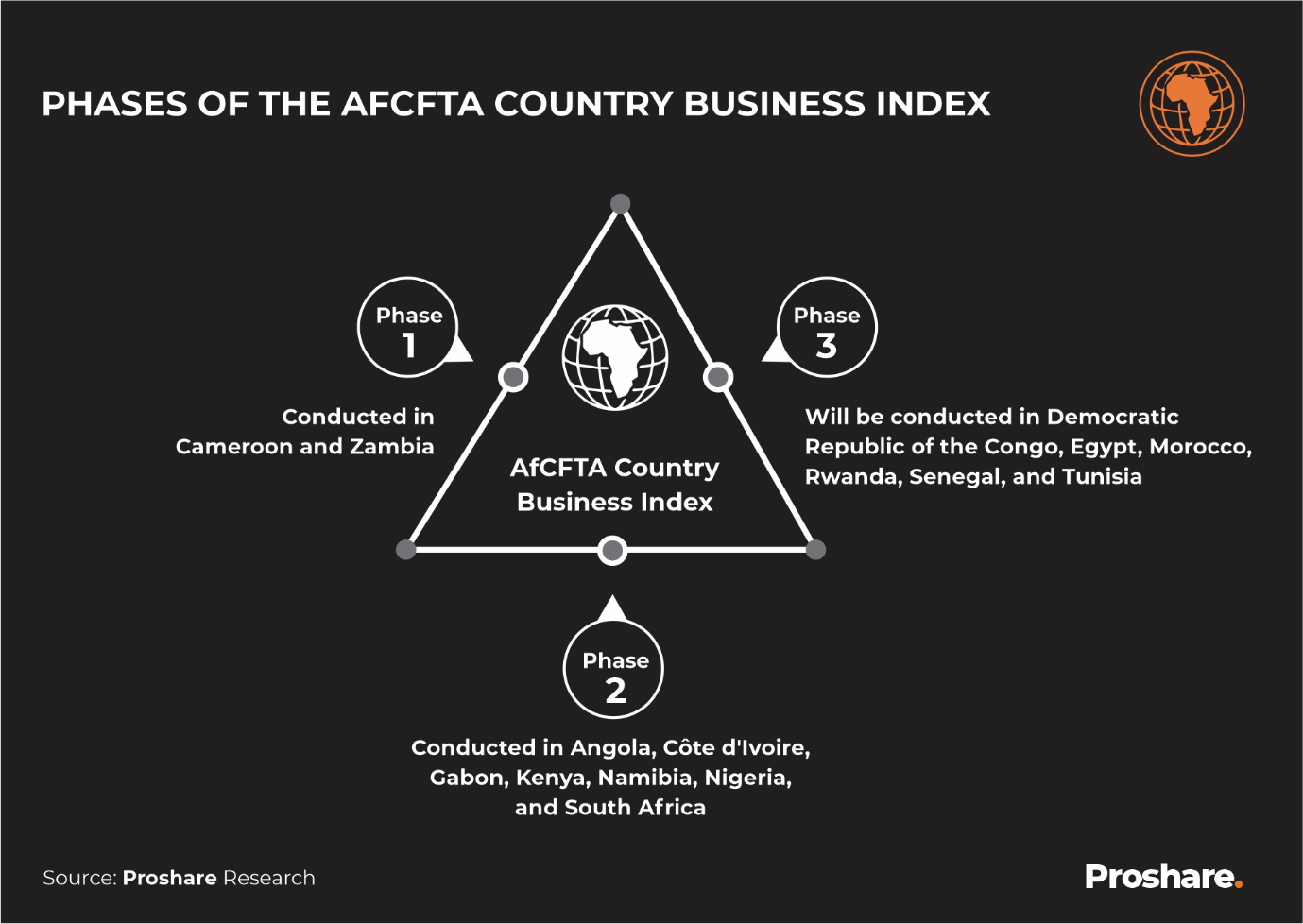
The AfCFTA became operational in January 2021 with an intent to create a single market for goods and services, facilitated by the movement of persons to deepen the economic integration of the African continent and the Pan African Vision of "An integrated, prosperous and peaceful Africa" enshrined in Agenda 2063.
The AfCFTA Country Business index pride itself as the first comprehensive tool with a robust methodological framework for the data collection on the implementation of the AfCFTA. The latest report surveyed the perception of private sector businesses based in, trading, or investing in Africa using a combination of online questionnaires, telephonic, and face-to-face interviews. The objective of the survey was to determine the perception of businesses on trade and investment under the AfCFTA. According to the report, were three specific objectives of the index:
- To measure the extent to which broader developments related to integration and trade have been implemented.
- To understand the business sector's perceptions of trading under free trade agreements in African countries.
- To assess the perceived impact of the African Continental Free Trade Area on the private sector's ability to trade and invest across African borders once the Area is operational.
Main Findings of the Report
The report made the following discoveries:
Businesses in the selected countries have a neutral to a fairly negative perception of the environment for investing and trading goods across Africa. This suggests that the business environment in Africa is not equipped or structured to support private sector businesses in identifying and harnessing strategic interests and market opportunities for trading and investing in Africa.
Also, private sector businesses in all phase 2 countries negatively perceive trade in goods. The respondents negatively perceive unauthorized charges, customs procedures, and additional fees. This suggests that tariffs and non-tariff barriers, which the AfCFTA intends to eliminate, remain the major disincentives to trade and investment across Africa despite the start of trading under the AfCFTA.
Meanwhile, small and medium-sized firms have higher positive perceptions of trading in Africa than large businesses in many considerations such as customs administration, technical barriers to trade, sanitary and phytosanitary measures, and specific limitations on trade. Still, they considered custom duties the primary barrier to trading goods. One deduction from this finding is that many small and medium-sized businesses may be beneficiaries of some privileges or softer measures in trading under the agreement.
The phase 2 countries also had a better perception of the awareness and use of free trade agreements, commercial environment, and goods restrictiveness and costs. The respondent businesses believe trade-related challenges such as unauthorized charges and other charges on trade significantly restrict trade in Africa. Still, they had a positive perception of sanitary and phytosanitary measures and technical trade barriers.
On the awareness and use of the trade agreement, 64% of the respondent businesses indicated their awareness of their country's participation in the AfCFTA. Many are more aware of their country's membership in subregional agreements than the AfCFTA. This suggests a relatively slow awareness of the AfCFTA protocols and their benefits.
Across the phase 2 countries, perceptions vary on the different dimensions of the index. While businesses in Namibia, Nigeria, and South Africa had relatively positive perceptions of awareness and use of the AfCFTA, those in Angola, Côte d'Ivoire, and Gabon had more positive perceptions of the commercial environment.
All businesses across the selected countries had the least positive perceptions of the ease of using the rules of origin and access to information on the rules. This is because complying with the rules-of-origin requirements was perceived as the most restrictive aspect of trade. Complex and problematic rules of origin discourage businesses from using free trade agreements.
There is a relatively neutral perception of the overall policy regimes for services, investment, intellectual property rights, and competition across all seven countries, reflecting the early stage of negotiations on those issues.
Lastly, women-owned businesses find trading across Africa more challenging than male-owned businesses. This suggests some level of gender imbalance in the implementation of the AfCFTA.
Policy Recommendations and Analysts' Thoughts
While the development of national implementation strategies and negotiations of protocols are ongoing, the UNECA ACBI report provides a basis for national and regional authorities to monitor and evaluate the concerns and breakpoints for private sector businesses (who are the major operators in the Area) on the effective operation of the AfCFTA.
The report suggests that the private sector perceptions of trade in goods under the AfCFTA are below neutral in the phase 2 countries. The businesses had weak positive perceptions of the technical barriers to trade and the sanitary and phytosanitary measures. Still, they had strongly negative perceptions of unauthorized charges, customs tariffs, and procedures in supporting trade, among others. This suggests that the processes for implementing the removal of tariff and non-tariff barriers at the national and continental levels need a quick curation to correct the negative perceptions of trade under the AfCFTA.
The report suggests that many small and medium-sized enterprises in Africa are women-owned. It is essential to ensure that regulatory frameworks and complementary measures support women's efficient, effective, and competitive participation in trading under the AfCFTA.
The report also advocates for urgent measures to raise awareness of the opportunities of the AfCFTA and its mechanisms at the national and continental levels through wider engagement with the private sector and business associations when implementation strategies are developed.
While the report highlights issues and challenges pivotal to private sector trading in the free trade area, some analysts believe that businesses will seamlessly surmount the challenges identified in the report by automating and digitalizing trade and investment processes under the AfCFTA.
Local observers believe that the poor perception of businesses in Nigeria towards the AfCFTA is based on vested interests in trade protection in the country. These interests undermine the domestication of the agreement.
 Lagos, NG • GMT +1
Lagos, NG • GMT +1










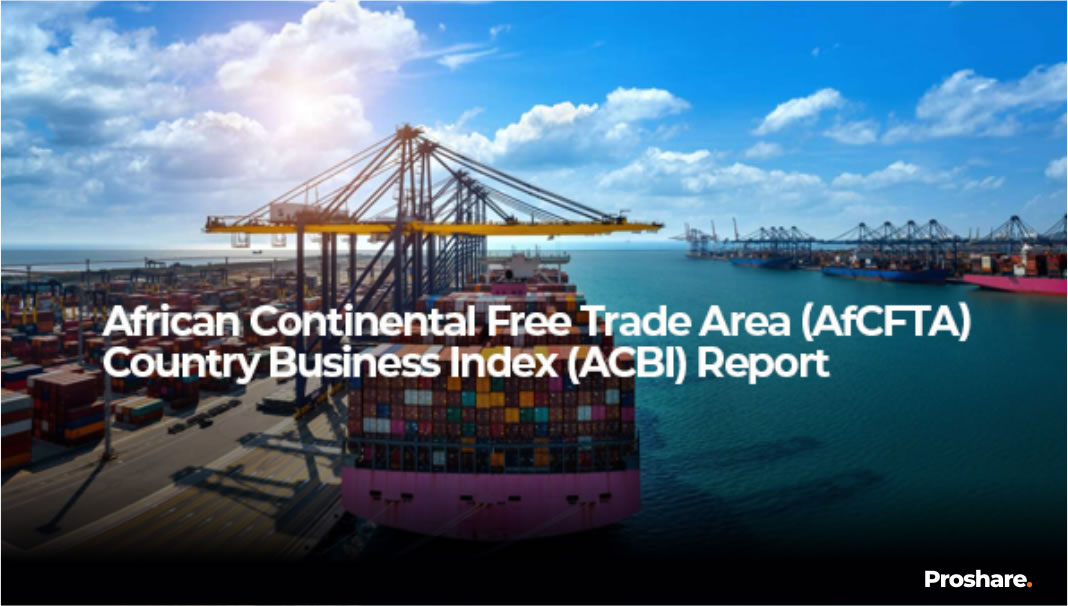
 776 views
776 views
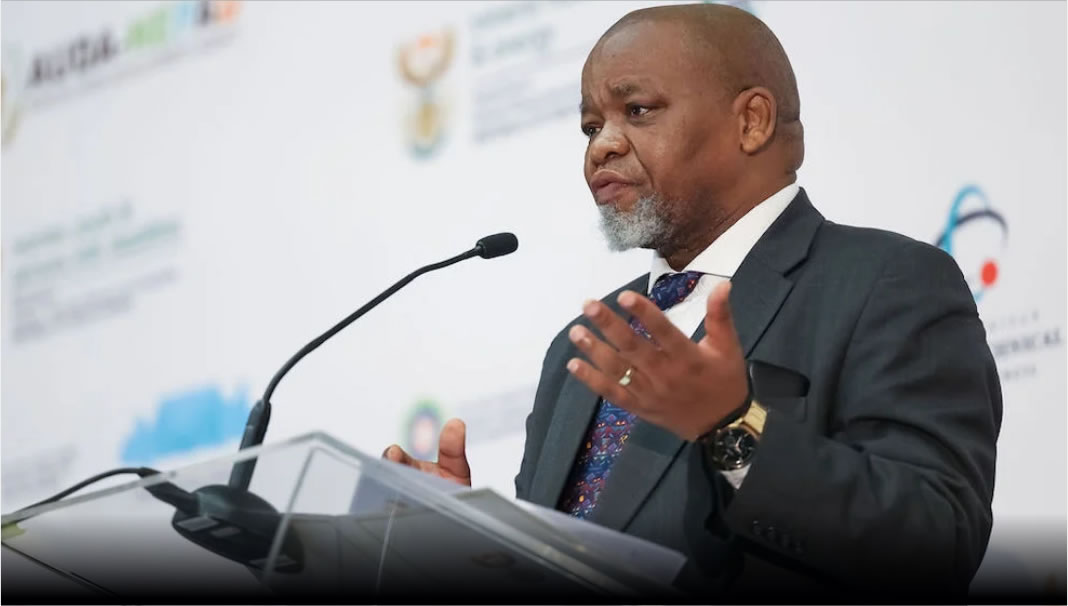

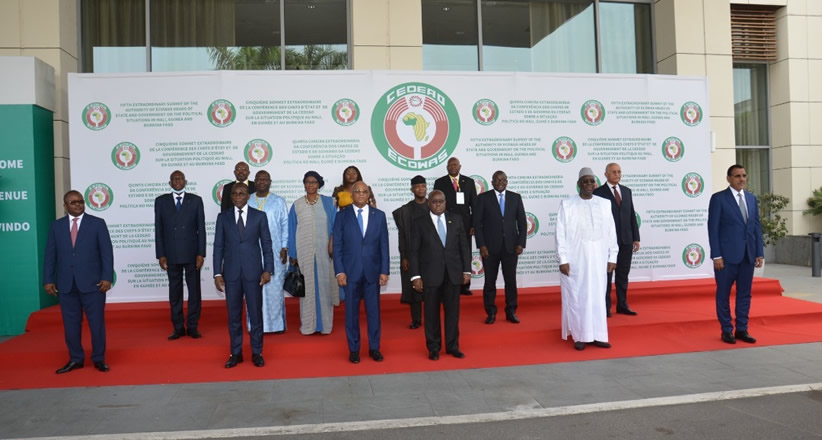
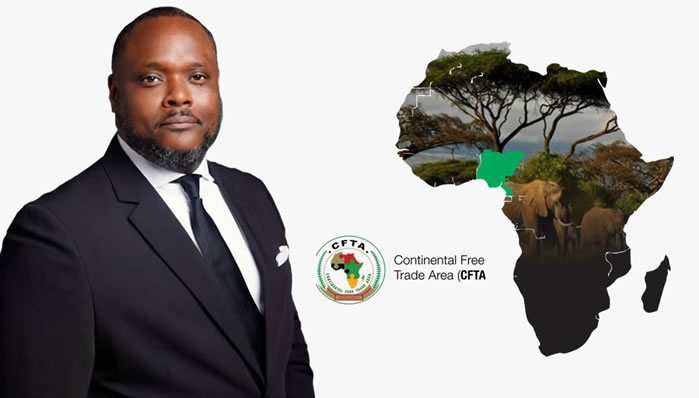


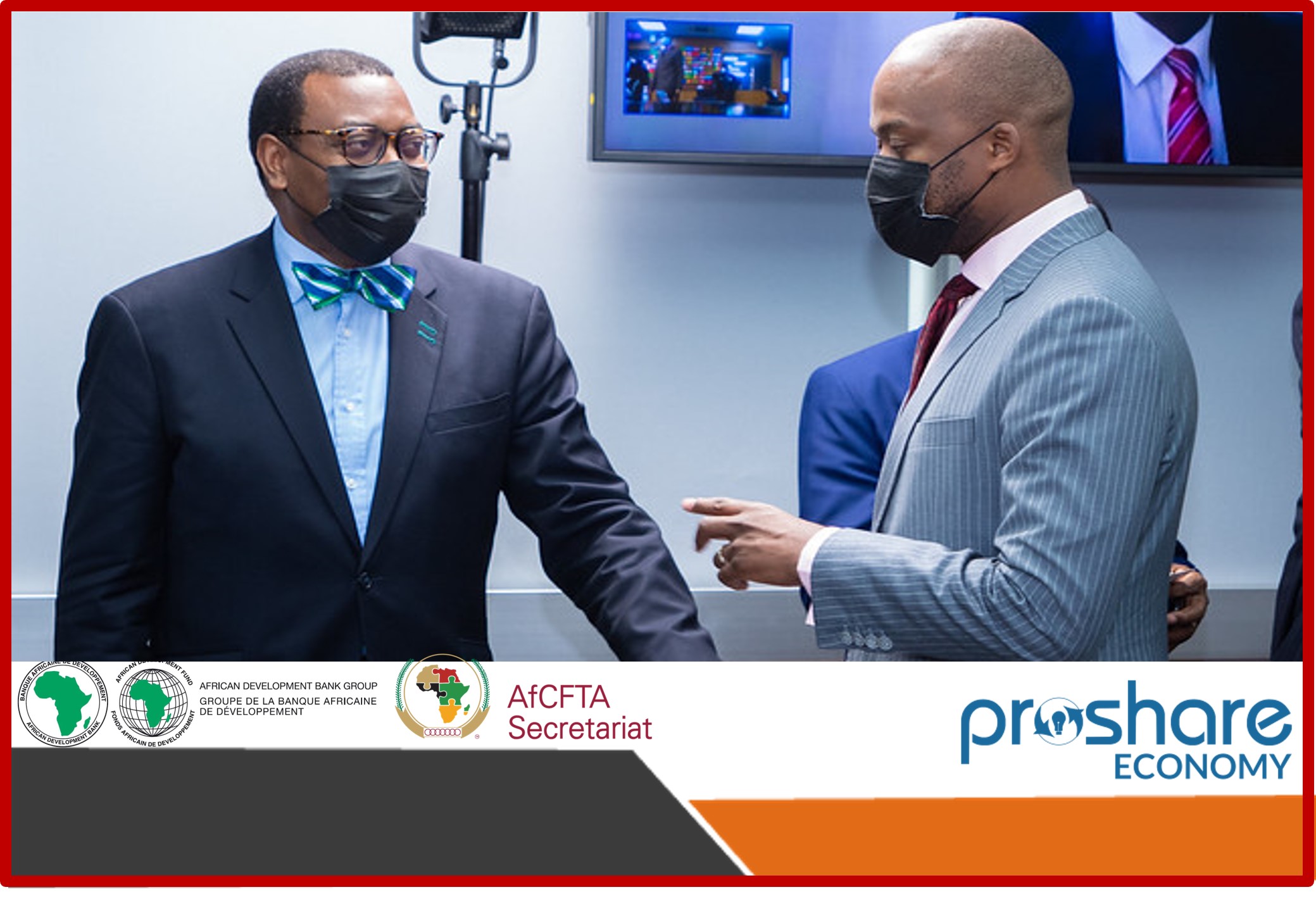






 Sponsored Ad
Sponsored Ad
 Advertise with Us
Advertise with Us









